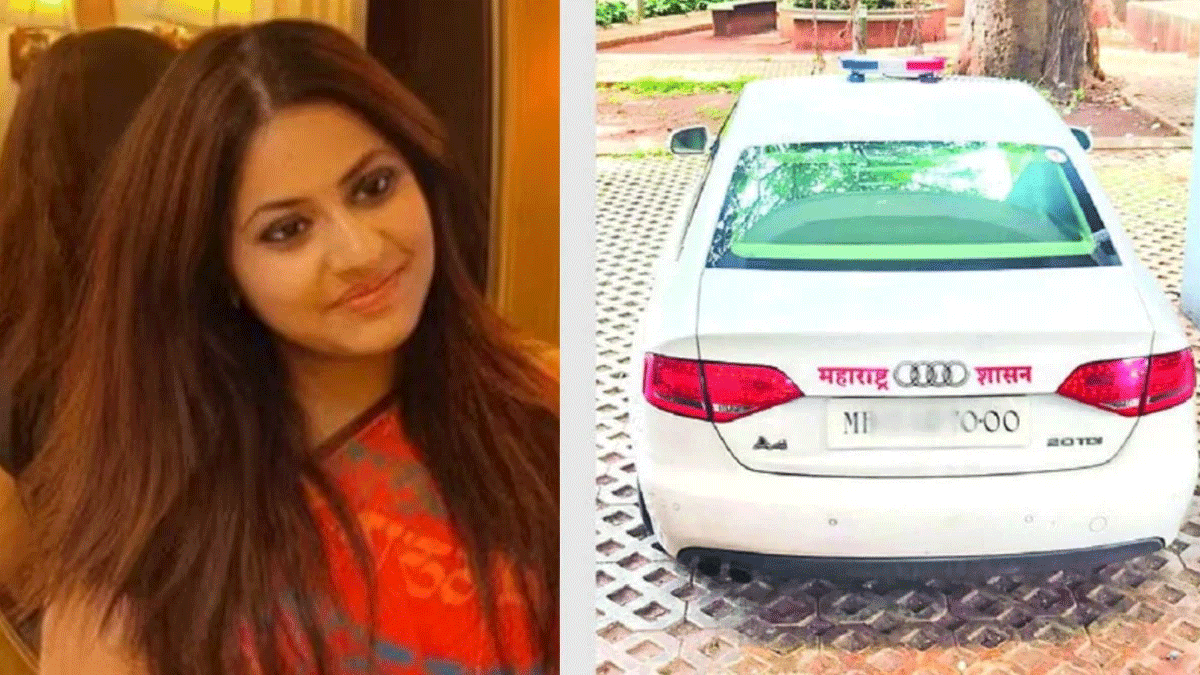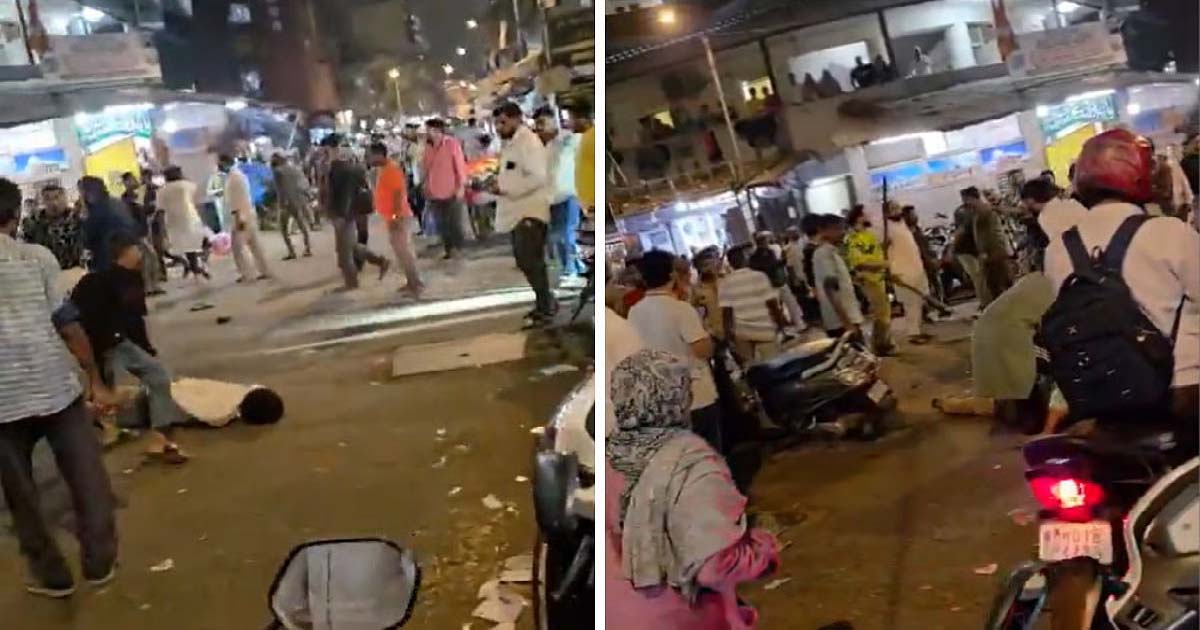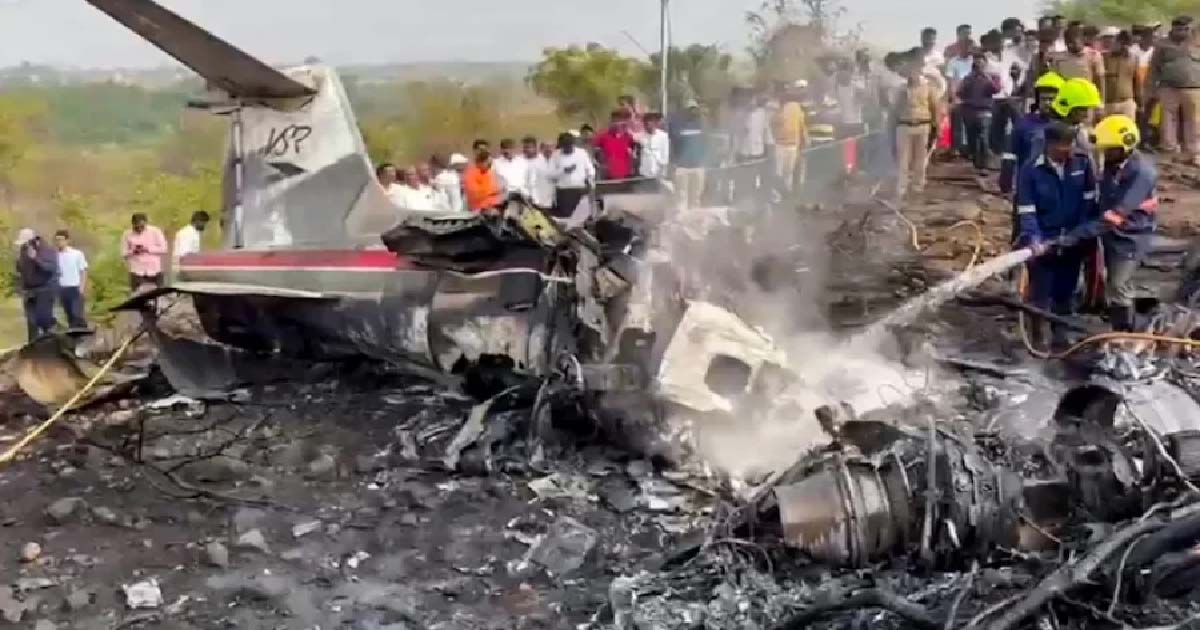Maharashtra
Maharashtra: Centre sets up panel to probe probationary IAS officer Puja Khedkar’s candidature

The Centre on Thursday set up a single-member panel to investigate the candidature of trainee IAS officer Puja Khedkar. Khedkar has been accused of misusing the disability and Other Backward Classes (OBC) quota to secure a candidature in the service.
In a statement, the Centre said that an additional secretary-rank officer would conduct the probe to verify the candidature and other details of the probationary IAS officer, who was allotted the Maharashtra cadre. The committee will submit the report in 2 weeks, as per the statement.
She grabbed the national headlines when she was transferred to Washim due to alleged misuse of power. Khedkar sought special privileges from the Collector’s office that were not sanctioned for her designation.
She arrived at her Washim office on Thursday in a Bolero car, a massive downgrade from the Audi with the red beacon light that she was first spotted with.
Khedkar, however, refused to address the accusations, saying that the government regulations prohibit her from doing so. “I am not authorised to speak on the issue. Government rules don’t provide (allow) me to speak on this,” she told reporters.
The Puja Khedkar saga
She claimed to be visually impaired and mentally ill in the affidavit submitted to the Union Public Service Commission (UPSC). Due to these certificates, she cleared the exam despite her low marks and secured an All India Rank (AIR) of 821.
After Puja was selected, she was asked to undergo medical tests to ascertain her claims of disabilities. She, however, refused to attend these examinations on 6 different occasions.
First, she did not attend the 5 scheduled medical examinations between April 22, 2022 and August 26, 2022. Later, she did not show up for a crucial MRI on September 2 that was to be conducted to assess the extent of her vision loss.
She later submitted an MRI report from an external centre, which the UPSC rejected. The UPSC challenged her selection in the Central Administrative Tribunal (CAT), which ruled against Puja Khedkar on February 23 last year. Her MRI certificate, however, was accepted later, confirming her appointment as an IAS officer.
Maharashtra
Crackdown on illegal street vendors in Andheri, Mumbai Municipal Corporation’s ‘K-Waste’ department takes action, citizens are relieved

Mumbai: Around 200 unauthorised hawkers and additional structures on footpaths in Ram Ganesh Gadkari Marg (Arla Marg) area of Andheri (West) in Mumbai were evicted by the Mumbai Municipal Corporation’s ‘K-West’ department yesterday (January 29, 2026). The operation, as per the instructions of Municipal Corporation Commissioner and Administrator Bhushan Gagrani, was conducted under the guidance of Deputy Commissioner (Zone-4) Bhagya Shri Kapse, and Assistant Commissioner (K-West Division) Chakrapani Ale. Unauthorised additional structures were found on footpaths connecting Swami Vivekananda Marg and Gulmohar Marg in Andheri (West) and on Ram Ganesh Gadkari Marg (Arla Marg) adjacent to the entrance of Dr. No. Cooper Hospital. It was also observed that unauthorised hawkers have set up shops in this area. It was creating obstacles for ambulances bringing patients to Cooper Hospital in case of emergency and for pedestrians to walk on the footpaths.
In this context, an eviction drive was launched by the ‘K-West’ administrative department of the Mumbai Municipal Corporation. Under this, around 200 unauthorized hawkers and unauthorized additional structures established on the footpaths in this area were evicted.
The eviction was carried out with the help of 04 encroachment removal vehicles, 03 JCBs and other equipment. During this operation, an adequate police force including 100 officers and employees of the Municipal Corporation were deployed. Local representatives and citizens are expressing satisfaction over this action. The Municipal Corporation administration has made it clear that regular evictions against unauthorized structures will continue in the future.
Crime
Mumbai Crime: One Critical Among 5 Injured After Violent Group Clash Breaks Out In Nagpada, 13 Detained

Mumbai: A violent confrontation between two groups erupted in South Mumbai’s Nagpada area late Thursday night, leaving several people injured and sparking a massive police response. Authorities have confirmed that one individual remains in critical condition following the brawl, which has once again put the spotlight on the volatile security situation in the densely populated area.
According to the Mumbai Police, the altercation broke out between two local groups over a financial dispute that escalated rapidly. What reportedly began as a verbal spat soon turned into a physical battle.
A video of the clash has surfaced on the internet shows the exact moments of the violent situation. Two men can be seen lying on the road, probably unconsious after participating in the brawl. Five to six other men can be seen weilding rods and sticks engaged in a fight, in full public view.
The violence resulted in five to six individuals sustaining serious injuries. They were rushed to a nearby hospital for emergency treatment. Medical officials confirmed this morning that while most are stable, one victim is currently in critical condition and is battling for life in the intensive care unit.
The Nagpada Police arrived at the scene shortly after the violence peaked to disperse the crowd and restore order. Heavy police deployment remained in the area throughout the night to prevent any retaliatory attacks or further communal or localised tension.
In a swift crackdown following the incident, the Mumbai Police have detained 13 individuals suspected of involvement in the clash. The police have officially registered a case against the accused parties under various sections of the Indian Penal Code (IPC), including Section 109 and Section 191.
As of Friday morning, the situation in Nagpada is reported to be under control, though an uneasy calm prevails. Security has been beefed up at key intersections, and patrolling has been intensified.
Maharashtra
Mumbai: Ajit Pawar’s plane crash investigation handed over to central agency, inquiry started after state government’s recommendation, agency in possession of black box

Mumbai: The investigation into the plane crash of the state’s Deputy Chief Minister Ajit Pawar (Ajit Pawar Baramati plane crash) will now be conducted by a central agency. The Air Accident Investigation Bureau (AAIB) has started an investigation into the accident and after receiving its report, it will be sent to the state government. Chief Minister Devendra Fadnavis had written a letter to Union Aviation Minister Kanjrapu Ram Mohan Naidu requesting an investigation into the accident. After this, the Union Minister gave this information in a letter written to the Chief Minister.
The Air Accident Investigation Bureau (AAIB) has started an investigation. The black box of the aircraft has been seized. An investigation has been started as per the Aircraft Accident and Incident Rules. This will be done in a transparent and time-bound manner.
All the technical records, operational details, facts available at the accident site are being investigated. The Ministry has taken note of our request to control such incidents in future and steps will be taken in this regard as soon as the investigation report comes. The cooperation of the Maharashtra government in this investigation will also be valuable for us. The local administration will help in this. We will also give this complete investigation report to the state government.
A very senior leader like Ajit Pawar died in a plane crash. Along with him, 4 others have also lost their lives in it. Chief Minister Devendra Fadnavis had demanded that the exact reasons for this accident should be investigated. He also demanded in the letter that immediate steps be taken to ensure that such accidents do not happen in the future.
Ajit Pawar’s last rites
The last rites of the state’s Deputy Chief Minister Ajit Pawar were performed in a mournful atmosphere in Baramati. Ajit Pawar died in a plane crash in Baramati yesterday. After which the entire state is in mourning. Ajit Pawar’s last rites were performed at the Vidya Pratishthan Ground in Baramati in the presence of lakhs of fans, supporters and leaders of all parties.
The untimely death of Ajit Pawar has shocked the entire state. Senior leaders of all parties including senior leader Sharad Pawar, Union Home Minister Amit Shah, Union Minister Nitin Gadkari, Chief Minister Devendra Fadnavis, Deputy Chief Minister Eknath Shinde, MNS President Raj Thackeray and others were present at the Vidya Pratishthan. Amidst the slogans of Ajit Dada Amar Rahe, Partha Pawar and Jay Pawar performed the last rites of Dada with tearful eyes. It seems that Dada’s departure has created a big void in the politics of the state.
-

 Crime3 years ago
Crime3 years agoClass 10 student jumps to death in Jaipur
-

 Maharashtra1 year ago
Maharashtra1 year agoMumbai Local Train Update: Central Railway’s New Timetable Comes Into Effect; Check Full List Of Revised Timings & Stations
-

 Maharashtra1 year ago
Maharashtra1 year agoMumbai To Go Toll-Free Tonight! Maharashtra Govt Announces Complete Toll Waiver For Light Motor Vehicles At All 5 Entry Points Of City
-

 Maharashtra1 year ago
Maharashtra1 year agoFalse photo of Imtiaz Jaleel’s rally, exposing the fooling conspiracy
-

 National News1 year ago
National News1 year agoMinistry of Railways rolls out Special Drive 4.0 with focus on digitisation, cleanliness, inclusiveness and grievance redressal
-

 Maharashtra1 year ago
Maharashtra1 year agoMaharashtra Elections 2024: Mumbai Metro & BEST Services Extended Till Midnight On Voting Day
-

 National News1 year ago
National News1 year agoJ&K: 4 Jawans Killed, 28 Injured After Bus Carrying BSF Personnel For Poll Duty Falls Into Gorge In Budgam; Terrifying Visuals Surface
-

 Crime1 year ago
Crime1 year agoBaba Siddique Murder: Mumbai Police Unable To Get Lawrence Bishnoi Custody Due To Home Ministry Order, Says Report












